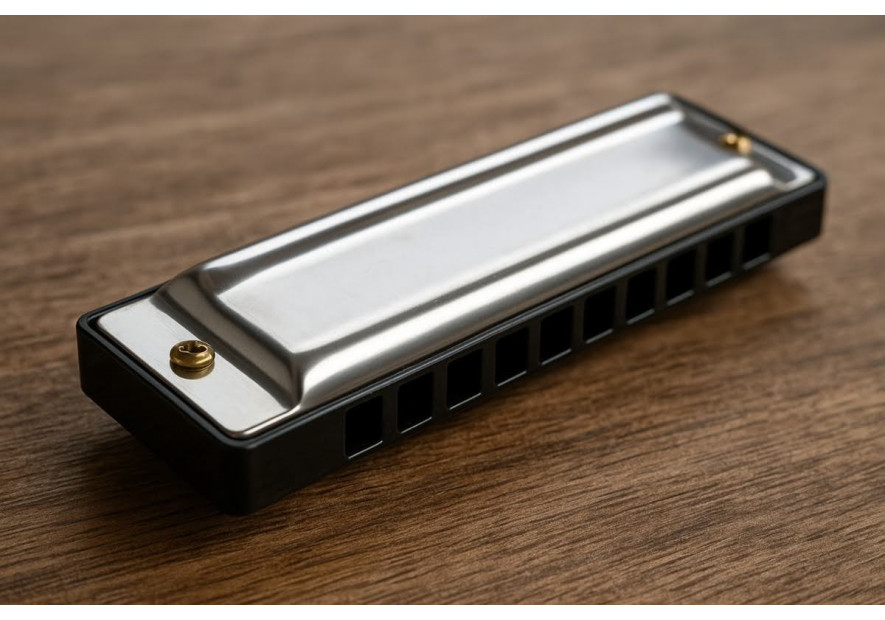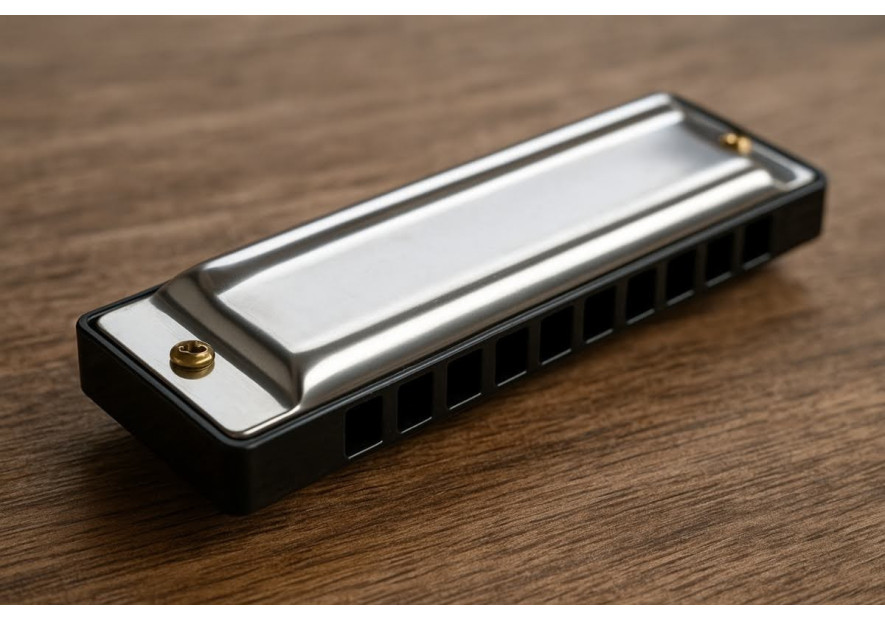Best Harmonica Key for Beginners - Start on the Right Note

When you buy your first harmonica, one of the first things you’ll notice is that there isn’t just one version. There are several keys, from C and D to G and A.
Each one has its own character and sound. But for someone just starting, figuring out the best harmonica key can feel confusing. The good news? You don’t need to overthink it.
With a few simple tips, you’ll know exactly which key to pick and why it matters.
Why Harmonicas Come in Different Keys
Among the different types of harmonicas, diatonic models are the most common and are built around specific major scales.
If you play the same tune on a harmonica in G, the notes shift to the G major scale, giving the melody a different tone color and pitch range.
Different types of harmonicas produce distinct tones and playing experiences.
Different keys are about musical compatibility. Musicians choose the key that fits the song or the other instruments being played. For beginners, understanding that concept early makes learning smoother.
Start with the Key of C: The Gold Standard for Beginners
If you ask 100 harmonica teachers which harmonica key to start with, 99 will say “C.” And they’re right. The C harmonica is the most commonly used for teaching, and for good reason:
- It’s easy to follow with learning materials. Most online tutorials, song tabs, and beginner courses are written for a harmonica in C.
- It has a mid-range tone. Not too high-pitched or too deep, the key of C feels balanced and comfortable for first-time players.
- It’s musically versatile. You can play pop, folk, country, and blues on it without running into awkward note gaps.
Simply put, the best harmonica key for beginners is C because it lets you focus on core harmonica techniques instead of worrying about transposing or extreme pitch ranges.
What About Other Keys?
Once you’ve played for a while and want to jam along with friends or backing tracks, you’ll start to see the need for other keys.
Here’s a quick overview of how they differ:
- A major: Lower and warmer. Great for blues.
- D major: Bright and higher-pitched, often used in folk music.
- G major: Deep, rich, and perfect for slow, expressive tunes.
- Bb major: Smooth and jazzy; used by advanced players for its mellow tone.
Each key has its own personality, but they all follow the same layout. That means once you learn on a C harmonica, switching to another key feels natural, you’re just playing at a different pitch.
Diatonic vs. Chromatic: Know the Difference
If you’ve browsed harmonicas online, you’ve likely seen “diatonic” and “chromatic” in the product titles.
- Diatonic harmonicas (most common) are built around a single major key. These are ideal for blues, rock, country, and folk music.
- Chromatic harmonicas use a button to access all 12 notes, allowing for complex jazz and classical pieces.
The main difference between these harmonicas lies in their range and flexibility.
For a beginner, a diatonic harmonica in C is by far the easiest and most affordable option.
Chromatics require more breath control, finger coordination, and ear training, skills you’ll develop later.
Understanding Second Position (Cross Harp)
Once you get comfortable, you might hear players talk about “cross harp” or “second position.”
This technique involves playing a harmonica in a key that’s different from the song’s key, usually a fourth up. For example, to play a song in G, you’d use a C harmonica.
_1.jpg)
Why? Because second position gives that gritty, expressive sound often heard in blues and rock.
Many legendary harmonica players, like Little Walter and Sonny Boy Williamson, used this approach. It’s one of those “aha” moments when the instrument’s full potential really starts to unfold.
How to Choose Based on the Music You Like
If you’re into blues or rock, keys like A, D, and G will sound great once you’ve mastered C.
For folk and pop, C and G harmonicas are your best friends.
And if you’re drawn to jazz or more melodic playing, consider adding an F or Bb harmonica down the line for smoother tones.
Think of it like building a small collection of colors for your music palette; each key lets you express a different emotion or energy.
Avoid Common Beginner Mistakes
A few quick notes before you buy:
- Don’t buy a random harmonica in a key just because it’s cheap. It may not match your learning materials.
- Avoid sets with multiple keys until you’re confident with one. Mastering C first gives you a strong foundation.
- Always check whether the harmonica is diatonic or chromatic. For most beginners, diatonic is the right choice.
Also, ensure that your instrument comes from a reputable manufacturer. Poorly tuned reeds or uneven airflow can frustrate even the most enthusiastic learner.
Building Your Collection Over Time
Once you’ve played for a while, adding new keys becomes exciting rather than confusing.
A good starter collection might include:
- C – your foundation for practice and most songs
- A – for deeper, bluesy tones
- D – for brighter folk or country pieces
- G – for rich, mellow ballads
This small set covers the most common jam session keys.
The Bottom Line
Choosing your first harmonica doesn’t have to be complicated. Start simple, focus on tone, and pick a reliable instrument.
The best harmonica key for beginners will always be C. It’s versatile, widely supported, and perfectly balanced for learning.
Once you’ve mastered it, the rest of the harmonica family opens up like an entire orchestra at your fingertips.
And when you’re ready to get started, consider HARMO harmonicas. We carry a wide range of premium harmonicas trusted by beginners and professionals alike.
Crafted by professional players with precision tuning and smooth airflow, they make learning easier and playing more enjoyable, no matter which key you’re holding.
Contact us today and let’s find the harmonica that fits you best!



Leave a comment